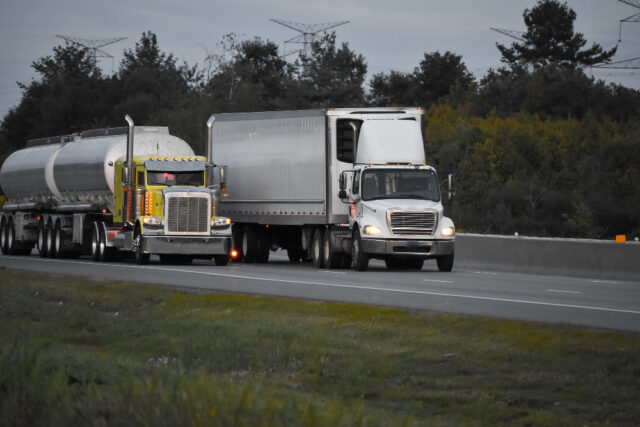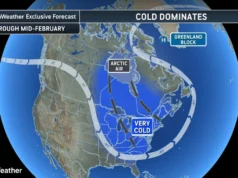
When a collision occurs on the roadway, the investigation process varies dramatically depending on the types of vehicles involved. While any motor vehicle accident requires thorough examination, truck accidents present unique challenges and complexities that set them apart from standard passenger car collisions. Understanding these critical differences is essential for anyone involved in such incidents, as the investigation methods, evidence collection, and legal implications can significantly impact the outcome of insurance claims and potential litigation.
Scale and Complexity of Evidence Collection
The sheer size and weight difference between commercial trucks and passenger vehicles creates vastly different accident scenes that require specialized investigation approaches. When a fully loaded semi-truck weighing up to 80,000 pounds collides with a standard passenger car weighing around 3,000 pounds, the resulting damage patterns, debris fields, and physical evidence spread across much larger areas. Investigators must examine extensive skid marks, displaced cargo, and damage to roadway infrastructure that rarely occurs in car-to-car accidents.
Commercial truck accidents often involve multiple vehicles due to the significant stopping distances required for large trucks and their inability to maneuver quickly. This creates complex accident scenes where investigators must reconstruct multiple points of impact, analyze the sequence of events involving several parties, and determine how the actions of each driver contributed to the overall incident. The investigation team frequently includes accident reconstruction specialists, mechanical engineers, and experts in commercial vehicle operations who possess the technical knowledge necessary to analyze these multifaceted scenarios.
Regulatory Framework and Documentation Requirements
A truck accident attorney at Silkman Law Firm states, “Commercial trucking operations fall under extensive federal and state regulations that do not apply to passenger vehicles. The Federal Motor Carrier Safety Administration (FMCSA) mandates specific documentation requirements, including driver logs, vehicle inspection reports, maintenance records, and hours of service documentation. Investigators must review these materials to determine whether regulatory violations contributed to the accident, adding layers of complexity absent in typical car accident investigations”.
Driver qualification files, medical certificates, drug and alcohol testing records, and training documentation become crucial pieces of evidence in truck accident cases. These regulatory requirements create a paper trail that investigators must thoroughly examine to establish whether the trucking company and driver were in compliance with safety regulations at the time of the accident. Violations of these federal regulations can significantly impact liability determinations and damage awards.
Multiple Parties and Insurance Coverage
Truck accident investigations often involve multiple potentially liable parties, including the truck driver, trucking company, vehicle manufacturer, maintenance contractors, cargo loaders, and equipment lessors. This complex web of relationships requires investigators to examine various insurance policies, contractual arrangements, and corporate structures to determine all sources of potential compensation for accident victims.
The insurance coverage for commercial trucks typically involves much higher policy limits than standard auto insurance, often ranging from hundreds of thousands to millions of dollars. However, these multiple insurance policies may have different coverage triggers, exclusions, and claim procedures that investigators must navigate. Understanding the interplay between primary coverage, excess policies, and umbrella coverage requires specialized knowledge of commercial insurance practices.
Electronic Data and Technology Systems
Modern commercial trucks are equipped with sophisticated electronic systems that generate valuable data for accident investigations. Electronic Control Modules (ECMs), also known as “black boxes,” record crucial information about vehicle speed, braking patterns, engine performance, and driver inputs in the moments leading up to an accident. Fleet management systems may also provide GPS tracking data, route information, and driver behavior metrics.
Extracting and analyzing this electronic data requires specialized equipment and expertise that goes beyond typical car accident investigations. The data must be preserved quickly after an accident to prevent loss or overwriting, and proper chain of custody procedures must be followed to ensure admissibility in legal proceedings. This technological evidence often provides objective information about the accident that can contradict or support witness testimony and driver statements.
Specialized Expert Testimony Requirements
The technical complexity of truck accidents typically requires expert witnesses with specialized knowledge in areas such as commercial vehicle operations, federal transportation regulations, truck maintenance practices, and cargo securement. These experts must understand the unique operational characteristics of commercial trucks, including braking distances, blind spots, turning radii, and stability factors that differ significantly from passenger vehicles.
Accident reconstruction in truck cases often involves complex engineering principles related to vehicle dynamics, load distribution, and infrastructure design. Expert witnesses must be able to explain these technical concepts to judges and juries who may have limited understanding of commercial trucking operations. The credibility and qualifications of these experts can significantly impact the outcome of legal proceedings.
Preservation of Evidence Challenges
The urgency of preserving evidence in truck accidents often exceeds that of car accidents due to the commercial nature of trucking operations. Trucking companies may have policies requiring immediate repairs or replacement of damaged vehicles to minimize business disruption. Critical evidence such as vehicle components, cargo, or electronic data may be at risk of destruction or alteration if not properly preserved through legal holds and spoliation notices.
The trucking company’s insurance carrier and legal team typically respond quickly to accident scenes, making it crucial for injured parties to secure independent investigation services promptly. This creates time-sensitive situations where evidence preservation actions must be taken within hours or days of an accident, rather than the weeks or months that might be acceptable in standard car accident cases.
Long-term Impact Assessment
Truck accidents frequently result in more severe injuries and property damage than car accidents, requiring extensive medical evaluations and economic impact assessments. The investigation process must account for potential long-term medical treatment needs, permanent disabilities, and lost earning capacity over extended periods. This comprehensive damage assessment requires coordination with medical professionals, vocational experts, and economists to develop accurate projections of future losses.
The investigation of truck versus car accidents demands specialized knowledge, resources, and urgency that distinguishes these cases from standard motor vehicle incidents. The complex regulatory environment, multiple parties, advanced technology systems, and severe consequences associated with truck accidents require experienced legal representation familiar with these unique challenges. For anyone involved in a truck accident, understanding these critical differences emphasizes the importance of securing qualified legal counsel who can navigate the complexities of commercial vehicle litigation effectively.
Disclaimer
The information contained in South Florida Reporter is for general information purposes only.
The South Florida Reporter assumes no responsibility for errors or omissions in the contents of the Service.
In no event shall the South Florida Reporter be liable for any special, direct, indirect, consequential, or incidental damages or any damages whatsoever, whether in an action of contract, negligence or other tort, arising out of or in connection with the use of the Service or the contents of the Service.
The Company reserves the right to make additions, deletions, or modifications to the contents of the Service at any time without prior notice.
The Company does not warrant that the Service is free of viruses or other harmful components












